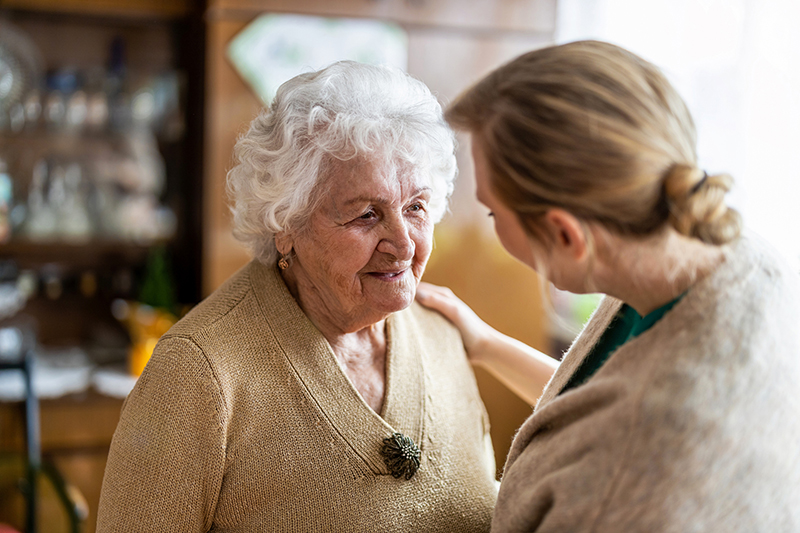Understanding the 7 Stages of Lewy Body Dementia
Lewy Body dementia (LBD) is a progressive and complex form of dementia. It is caused by abnormal protein deposits called Lewy bodies in the brain. These Lewy bodies are clumps of a protein called alpha-synuclein that accumulate in nerve cells, particularly in areas responsible for thinking, memory, and movement. These deposits disrupt normal brain function, leading to cognitive decline, motor issues, and various other symptoms.
Lewy Body dementia is unique because it presents a combination of cognitive and motor symptoms. These often overlap with symptoms of both Alzheimer's disease and Parkinson's disease, making diagnosis challenging.
The symptoms can vary greatly between individuals and can change in severity over time. Common symptoms include significant memory loss, attention deficits, hallucinations, and movement difficulties similar to those seen in Parkinson’s disease, such as stiffness and tremors.
Understanding the 7 stages of Lewy Body dementia can help families and caregivers recognize the progression of the disease and provide appropriate care. By identifying the early signs and anticipating the challenges that come with each stage, caregivers can better prepare for the physical, emotional, and practical needs of their loved ones.
This knowledge can also facilitate early diagnosis and intervention, potentially improving the quality of life for those affected by Lewy Body dementia.
What Is Lewy Body Dementia?
Lewy Body dementia is the second most common type of progressive dementia after Alzheimer's disease. It profoundly affects individuals as it causes a decline in thinking, reasoning, and the ability to function independently.
Families may notice fluctuating cognition, where their loved one’s attention and alertness vary greatly from day to day. Recurrent visual hallucinations can be distressing for both the individual and their caregivers. Motor symptoms similar to Parkinson’s disease, such as stiffness and tremors, further complicate daily life.
Lewy Body dementia begins subtly, but as the disease progresses through the stages, significant memory loss can occur, and individuals may eventually require constant supervision.
Stage 1: No Cognitive Decline
In the initial stage, individuals show no signs of cognitive decline. They are fully independent, with no symptoms of Lewy Body dementia evident. At this stage, diagnosis is not possible since no memory problems or other indicators are present.
Stage 2: Very Mild Cognitive Decline
During the early stages, individuals may begin to experience very mild cognitive decline. This might include occasional forgetfulness or minor memory problems. These early signs are often attributed to normal aging, and the symptoms are generally not severe enough to warrant a diagnosis of dementia.
Stage 3: Mild Cognitive Decline
Stage 3 is marked by mild cognitive decline. Individuals may have trouble with complex tasks, experience increased forgetfulness, and show subtle signs of difficulty in concentrating.
At this stage, the symptoms may start to interfere with daily activities, but the person is still able to maintain a relatively normal life. A diagnosis of mild cognitive impairment may be made, but it is still not definitive for Lewy Body dementia.
Stage 4: Moderate Cognitive Decline
In this stage, cognitive decline becomes more noticeable. Individuals may struggle with day-to-day activities, experience significant memory loss, and have difficulty with planning and organizing tasks.
Symptoms of Lewy Body dementia, such as visual hallucinations and motor difficulties similar to Parkinson's disease, become more pronounced. As these characteristic symptoms become clearer, a diagnosis is more likely.
Stage 5: Moderately Severe Cognitive Decline
By stage 5, individuals need significant assistance with daily living. They may experience severe memory loss, have trouble communicating, and show increased confusion. Family members will notice that the person can no longer function independently and requires constant supervision.
Symptoms of Lewy Body dementia, such as visual hallucinations and motor issues, become more pronounced.
Stage 6: Severe Cognitive Decline
Stage 6 is marked by severe cognitive decline. Individuals lose their ability to communicate effectively and may become unable to recognize close family members. They need extensive help with basic activities, including eating and dressing.
At this stage, constant supervision is necessary, and the person may exhibit significant behavioral changes.
Stage 7: Very Severe Cognitive Decline
In the final stage, individuals lose their ability to speak and communicate. They become completely dependent on others for all aspects of daily living. The symptoms of Lewy Body dementia are at their most severe, with profound memory loss and a complete loss of cognitive and motor functions. Care at this stage is focused on comfort and quality of life.

When To Ask for Help
Caring for someone with Lewy Body dementia can be incredibly challenging, especially as the disease progresses through its stages. Here are some indicators that it may be time to seek professional help or additional support:
Difficulty Managing Symptoms
If the symptoms become too challenging to manage at home, consider seeking help from healthcare professionals who specialize in dementia care.
Caregiver Burnout
When caregivers start to feel overwhelmed, exhausted, or emotionally drained, it’s called caregiver burnout. When this happens, it is crucial for caregivers to seek support to ensure their well-being.
Safety Concerns
If the person with Lewy Body dementia is at risk of harm due to cognitive or motor decline, constant supervision by trained professionals may be necessary.
Complex Medical Needs
As the disease progresses, individuals may develop complex medical needs that require specialized care and monitoring.
Understanding the stages of Lewy Body dementia and recognizing when to ask for help can significantly improve the quality of life for both individuals with the disease and their caregivers. Early diagnosis and intervention are key to managing symptoms and planning for the future.
Memory Care at Clarendale Arcadia
At Clarendale Arcadia, memory care residents receive personalized care tailored to their individual needs and preferences, ensuring a supportive and nurturing environment where they can thrive.
Recognized as one of the best in memory care by U.S. News, Clarendale Arcadia offers comprehensive services designed to address the unique challenges of Lewy Body dementia and other types of dementia.
Their expert staff is trained to provide specialized care that supports both cognitive and physical health, helping residents maintain their independence and quality of life for as long as possible. With a focus on compassionate care and individualized attention, Clarendale Arcadia stands out as a premier choice for families seeking the best for their loved ones.
Join Our Community Today
Discover the difference personalized care can make in the lives of your loved ones. Contact us today to learn more and schedule a visit. See first hand our memory care services and how we can help support your family through every stage of Lewy Body dementia.

